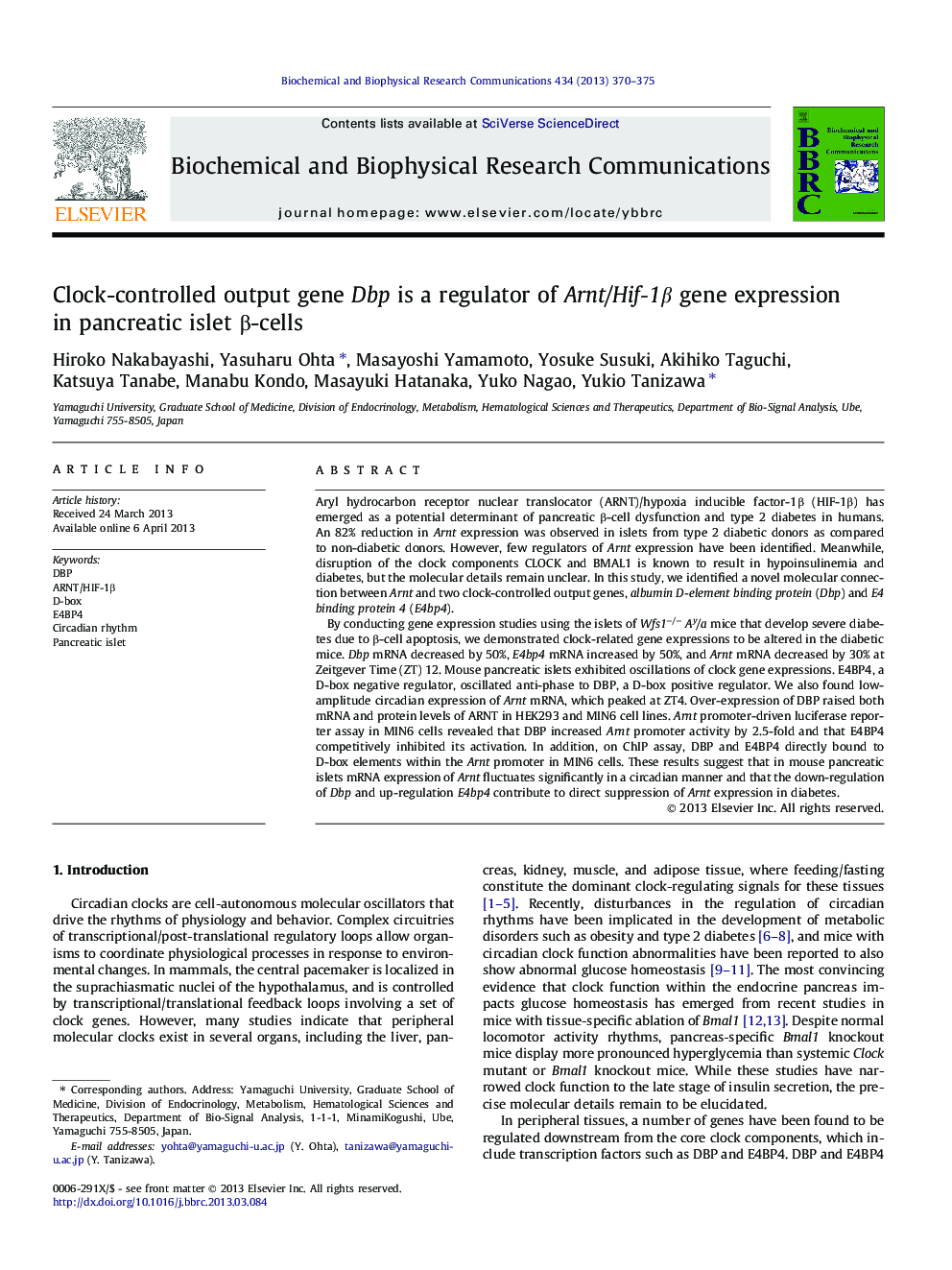| Article ID | Journal | Published Year | Pages | File Type |
|---|---|---|---|---|
| 10759544 | Biochemical and Biophysical Research Communications | 2013 | 6 Pages |
Abstract
By conducting gene expression studies using the islets of Wfs1â/â Ay/a mice that develop severe diabetes due to β-cell apoptosis, we demonstrated clock-related gene expressions to be altered in the diabetic mice. Dbp mRNA decreased by 50%, E4bp4 mRNA increased by 50%, and Arnt mRNA decreased by 30% at Zeitgever Time (ZT) 12. Mouse pancreatic islets exhibited oscillations of clock gene expressions. E4BP4, a D-box negative regulator, oscillated anti-phase to DBP, a D-box positive regulator. We also found low-amplitude circadian expression of Arnt mRNA, which peaked at ZT4. Over-expression of DBP raised both mRNA and protein levels of ARNT in HEK293 and MIN6 cell lines. Arnt promoter-driven luciferase reporter assay in MIN6 cells revealed that DBP increased Arnt promoter activity by 2.5-fold and that E4BP4 competitively inhibited its activation. In addition, on ChIP assay, DBP and E4BP4 directly bound to D-box elements within the Arnt promoter in MIN6 cells. These results suggest that in mouse pancreatic islets mRNA expression of Arnt fluctuates significantly in a circadian manner and that the down-regulation of Dbp and up-regulation E4bp4 contribute to direct suppression of Arnt expression in diabetes.
Related Topics
Life Sciences
Biochemistry, Genetics and Molecular Biology
Biochemistry
Authors
Hiroko Nakabayashi, Yasuharu Ohta, Masayoshi Yamamoto, Yosuke Susuki, Akihiko Taguchi, Katsuya Tanabe, Manabu Kondo, Masayuki Hatanaka, Yuko Nagao, Yukio Tanizawa,
